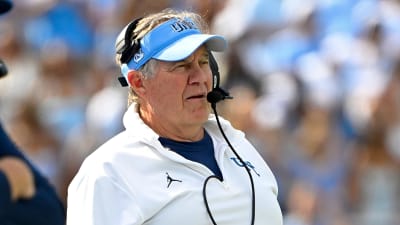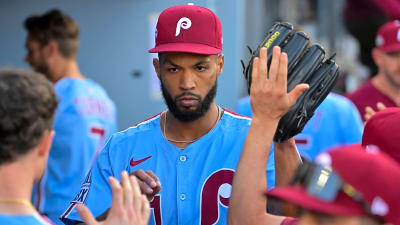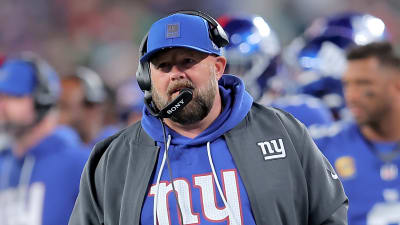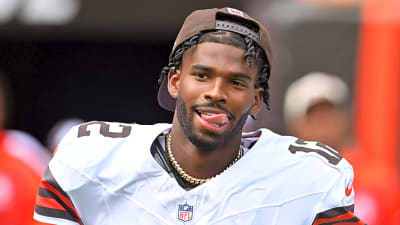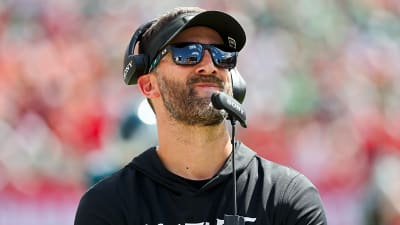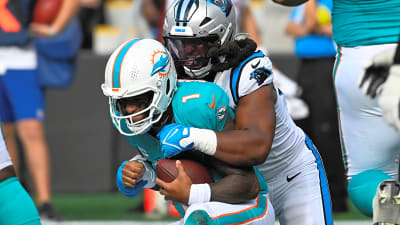
Jerry Krause's Revenge: An assessment of owner Michael Jordan
The last scene of episode seven of ESPN’s “The Last Dance” documentary was absolutely sublime. Watching the montage of Michael Jordan pushing himself to the extreme, pulling away from his teammates during wind sprints and being moved to tears as he discussed his pathological will to win gave me chills. And his closing quote perfectly summed up his mentality toward competition:
“When people see this, [they will think]: ‘Well, he wasn’t really a nice guy. He may have been a tyrant.’ No. That’s you. You never won anything. I wanted to win…That’s how I played the game.”
That was Michael Jordan, the player.
Michael Jordan, the owner, on the other hand, has had a different mentality since taking over as majority owner of the Charlotte Bobcats/Hornets franchise in March 2010. He’s never won anything. And it’s unclear if he even wants to win.
This dichotomy of these two Jordans is perplexing. “The Last Dance” provides us with a hagiographic look at Jordan as a player. Now it’s time for an unbiased assessment of Jordan the owner. And, in remembrance of the late Jerry Krause, the Hall of Fame general manager and scapegoat of Jordan’s Bulls, I won’t pull any punches. Because that’s the Jordan way, isn’t it?
NOTE: We start with Jordan’s first full season as majority owner and use the NBA calendar year (July to June).
2010-11 record: 34-48 (10th place; missed playoffs)
MAJOR TRANSACTIONS: MJ was fairly active in his first year as majority owner, but perhaps he shouldn’t have been. Before the season, he dealt Tyson Chandler to the Mavs for Matt Carroll, Erick Dampier, Eduardo Nájera and cash. Chandler became the anchor of Dallas’ stingy defense and helped lead the Mavericks to an NBA title in 2011. He went on to win Defensive Player of the Year and make third-team All-NBA in 2012. Interestingly, Jordan also signed Kwame Brown –- the player he once drafted No. 1 out of high school for the Wizards and ruthlessly bullied into NBA obscurity. Finally, during the draft, Jordan traded Gerald Wallace to the Blazers in a deal that yielded a 2011 and 2014 first-round draft picks.
COACHING/FRONT OFFICE: Jordan replaced one washed-up coach (Larry Brown) with a much less successful washed-up coach (Paul Silas).
2011 DRAFT: In his best move as an owner, Jordan selected Kemba Walker with the ninth pick. He also drafted Tobias Harris with the 19th pick, which was excellent .... until he traded him for a washed-up Corey Maggette and Bismack Biyombo, who would go on to dish out eight assists in 79 games in 2013-14.
GRADE: This is the ultimate one-step forward, two-steps back year for Jordan. He gets a D-plus overall. The Walker pick was an A-plus. The Chandler and Harris trades were both Fs. The Silas hiring was pretty pitiful too.

2011-12 record: 7-59 (15th place; missed playoffs)
MAJOR TRANSACTIONS: The Bobcats waived an out-of-shape Boris Diaw, who would go on to become a key contributor for the Spurs during their Finals runs in the mid-2010s. After the season, MJ dealt Maggette for Ben Gordon and a 2014 first-round pick.
COACHING/FRONT OFFICE MOVES: Jordan fired Rod Higgins as GM and replaced him with Richard Cho, who had seven years to rebuild. But his rebuilding plan simply wasn't good. MJ also relieved Silas of his coaching duties and hired Mike Dunlap (whoever the heck that is) as coach.
2012 DRAFT: Sadly, despite having the lowest winning percentage in NBA history, the Bobcats did not get the No. 1 pick in the draft, Anthony Davis, and instead had to settle for his Kentucky teammate, Michael Kidd-Gilchrist, with the second pick. In retrospect, MJ whiffed on this pick as he could have nabbed Bradley Beal (No. 3 pick) or Damian Lillard (6). In the second round, Jordan drafted Jeffrey Taylor (32) when he could have had Jae Crowder (34), Draymond Green (35), Khris Middleton (39) or Will Barton (40). Yikes!!
GRADE: Is there even an argument for Jordan not getting an F-minus this season? He oversaw the worst team in NBA history. He absolutely botched both draft picks when there were future All-Stars lurking everywhere. He hired a below-average GM and a head coach no one had heard of before or since. Yep, F-minus seems fair to me.
2012-13 record: 21-61 (14th place; missed playoffs)
MAJOR TRANSACTIONS: None
COACHING/FRONT OFFICE MOVES: After the season, Jordan fired Dunlap and hired Steve Clifford as head coach.
2013 DRAFT: Jordan selected Cody Zeller with the fourth overall pick. While Zeller has been a solid role player, this was a bit of a reach. MJ should have reached for the likes of CJ McCollum (No. 10 pick), Steven Adams (12) or Giannis Antetokounmpo (15).
GRADE: Talk about an uninspiring year! Another terrible record, no impactful transactions and a draft pick who has never moved the needle. We’ll be nice and give Jordan a D for somewhat salvaging things by hiring a decent head coach in Clifford.
2013-14 record: 43-39 (7-seed; lost in first round to Heat, 4-0)
MAJOR TRANSACTIONS: Jordan signed big man Al Jefferson, who averaged 17.5 points and 8.9 rebounds in three years with Charlotte, the first of which resulted in an All-Star selection. Yet, in retrospect, why was Jordan making “win-now” moves when he could have been loading up on high lottery picks for a rebuild? This was the official beginning of Charlotte’s "Hamster Wheel of Mediocrity." (MJ also signed Marvin Williams after the season.)
COACHING/FRONT OFFICE MOVES: None
2014 DRAFT: Armed with three picks in the top 45, Jordan selected Noah Vonleh (9), Shabazz Napier (24) and Dwight Powell (45). He kept Vonleh, but should have taken Zach LaVine (13), TJ Warren (14) or Jusuf Nurkic (16). He dealt Napier and Powell, both of whom developed into rotation players, for some golf balls and a putter (just kidding – golf balls and a putter would have been worth more than what he actually received in the deals).
GRADE: While this was a successful season for Charlotte, MJ prematurely pulled his team out of a rebuild with the Jefferson signing. And he botched the draft yet again. He gets a C-minus for lacking foresight.

2014-15 record: 33-49 (11th place; missed playoffs)
MAJOR TRANSACTIONS: In a high-risk, high-reward move, Jordan signed the enigmatic Lance Stephenson. Unfortunately, Lance showed up out of shape and Jordan subsequently dealt him after the season. He dealt Gerald Henderson and Vonleh for Nicolas Batum, and also acquired Jeremy Lamb. Both were solid moves, but as we’ll later see, Batum ended up hamstringing the franchise, and MJ let Lamb walk in free agency just as he started to fulfill his potential.
COACHING/FRONT OFFICE MOVES: None
2015 DRAFT: This draft will live on in infamy for Jordan as he reportedly turned down four first-round picks from the Celtics for the ninth pick. Jordan opted to select Frank Kaminsky. (Ugh.) He should have accepted the trade. Or he could have drafted Justise Winslow (No. 10), Myles Turner (11) or Devin Booker (13). MJ also drafted some guy named Juan Pablo Vaulet at 39 (Note: I don’t think this is the Juan Pablo from The Bachelor, but it might as well have been.) He could have taken Josh Richardson (40), Pat Connaughton (41) or Norman Powell (46).
Grade: The Batum and Lamb acquisitions were OK moves. The rest of MJ’s 2014-15 moves were unconscionable. He gets a D.
2015-16 record: 48-34 (6-seed; lost in first round to Heat, 4-3)
MAJOR TRANSACTIONS: Jordan signed Jeremy Lin, who was a solid contributor for one year, averaging 11.7 points.
COACHING/FRONT OFFICE MOVES: None
2016 DRAFT: The Hornets drafted Malachi Richardson with the 22nd pick. He has appeared in 70 games, none for the Hornets. Jordan could have drafted Pascal Siakam (27) or Dejounte Murray (29).
GRADE: MJ gets an uninspiring C here. It appeared, for a moment, that the franchise was on the upswing with Clifford at the helm and Kemba developing into an All-Star-level player. Unfortunately, this is the high point of Jordan’s tenure as owner.

2016-17 record: 36-46 (11th place; missed playoffs)
MAJOR TRANSACTIONS: This is what is known as hamstringing your franchise. Jordan re-signed Batum to arguably the worst contract in the past decade (five years/$120M). He also overpaid Williams (four years/$54.5M deal). The "fun" didn’t stop there, though. He signed Roy Hibbert, who retired after the season. He signed Ramon Sessions. He traded for Marco Belinelli, whom he later dealt for Dwight Howard. And he signed Christian Wood about three years too early.
COACHING/FRONT OFFICE MOVES: None
2017 DRAFT: According to reports, the Hornets’ front office wanted Donovan Mitchell at pick 11, but Jordan overruled it, drafting Malik Monk instead. Mitchell is already an All-Star. Monk is suspended indefinitely for a failed drug test. Monk’s Kentucky teammate, Bam Adebayo (14), was also available.
GRADE: Can we go below F-minus? This might have been the most detrimental season of basketball decision-making in NBA history. It’s a shame Jerry Krause died in March 2017 -– I’m sure he would have had some thoughts about Jordan’s struggles.

2017-18 record: 36-46 (10th place; missed playoffs)
MAJOR TRANSACTIONS: None, but Jordan’s inaction cost him dearly as he could have traded Walker at his peak value. But he kept him in an attempt to make the playoffs.
COACHING/FRONT OFFICE MOVES: Toward the end of the season, MJ replaced Cho with Mitch Kupchak and, after the season, replaced Clifford as coach with James Borrego. Kupchak has been below average, but Borrego seems to have some potential.
2018 DRAFT: For a moment, Jordan made a great selection, drafting Shai Gilgeous-Alexander (No. 11 pick). But then he traded him for Miles Bridges (12). Bridges is a fun athlete, but it’s doubtful that he’ll develop into an All-Star. Oklahoma City's SGA, on the other hand, looks destined for greatness as he’s averaging 19.3 ppg., 6.1 rpg. and 3.3 apg. We must give some credit to Jordan for trading for Devonte’ Graham (34), however, as he has already developed into a surprisingly competent lead guard.
GRADE: I like the Borrego hire and the trade for Graham but not much else. Jordan gets a C.

2018-19 record: 39-43 (9th place; missed playoffs)
MAJOR TRANSACTIONS: Jordan signed Tony Parker, who did little to move the needle in his final NBA season. He once again refused to trade Walker at the deadline. This was inexcusable considering he wasn’t planning on re-signing him to a max contract that summer and because a number of teams would have given up legit assets for him. He later did a sign-and-trade with Kemba, sending him to Boston for Terry Rozier, whom he overpaid (three years/$58M).
COACHING/FRONT OFFICE MOVES: None
2019 DRAFT: Jordan selected PJ Washington with the 12th pick. He should be a nice role player. He passed on players with higher ceilings --Tyler Herro (13) and Brandon Clarke (21).
GRADE: MJ’s insistence on keeping Walker made no sense at the time and makes no sense today -– was he golfing with his phone on silent during the deadline? He gets a D-minus for perpetuating Charlotte’s mediocrity.
It has been an ugly 10 years for Charlotte with MJ at the helm, and the Hornets' arrow is not pointing up. Charlotte is 23-42 this season, 10th in the Eastern Conference. The Hornets probably aren’t bad enough to land a top draft pick. In other words, it’s par for the course for MJ and the Charlotte Hamsters Wheels -– I mean Hornets.
More must-reads:
- Jeremy Lin shares hilarious stories about Michael Jordan as Hornets owner
- Inside Michael Jordan's relationship with Kobe Bryant
- The 'Team USA men's basketball coaches' quiz
Breaking News
Trending News
Customize Your Newsletter
 +
+
Get the latest news and rumors, customized to your favorite sports and teams. Emailed daily. Always free!
